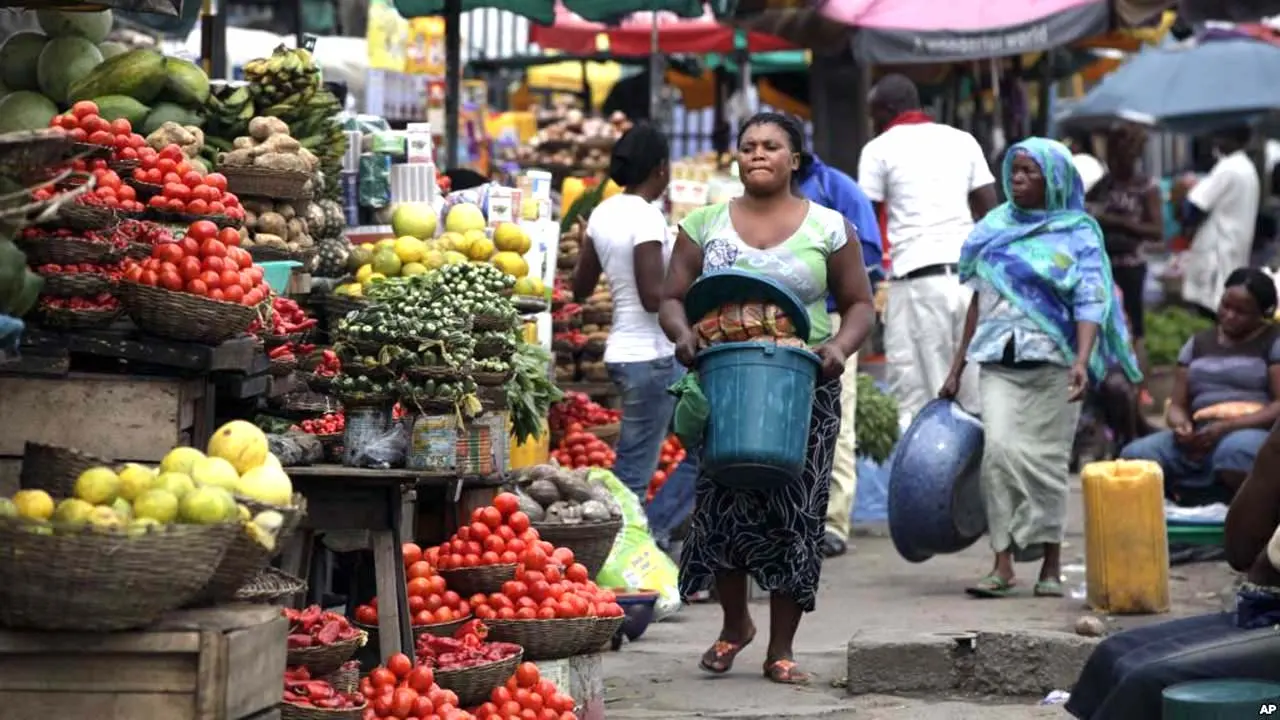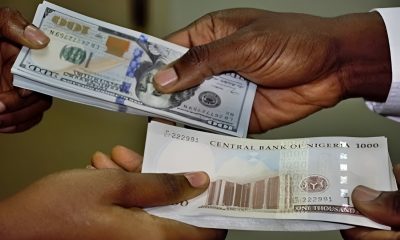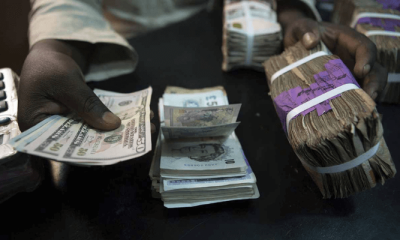Featured
CBN’s productivity-push policy best for times like this
Published
2 years agoon
By
Editor
Since covid-19 disrupted Nigeria and the entire world in 2020, a number of things have not remained the same in Africa’s biggest economy. For the first time since the early days of President Muhammadu Buhari in office, Nigeria’s import fell in 2020 and 2021.
Figures from the Nigeria Bureau of Statistics showed that in the first quarter of 2016, Nigeria imported goods worth N1.45tn. The figure rose to N2.06tn in the second quarter, N2.41tn in the third quarter, and further to N2.51tn in the fourth quarter.
In 2021 Nigeria imported N6.85tn worth of goods in the first quarter, and N6.95tn in the following quarter. It rose in the third quarter to N8.13tn but fell to N5.94tn in the last quarter of the year. In those five years, import bills rose by N12.11tn—that is 129.10 percent.
Further analysis of the foreign trade report by the NBS revealed that total exports for 2021 was N18.91tn, creating a trade deficit of N1.94tn. The deficit stood at N7.37 trillion the year before.
Economic and pandemic restrictions, in addition to dollar crisis, contributed more significantly than border closure the government implemented to narrow the gap for Nigeria. So nothing much to cheer—except that Nigerians coped consuming whatever they produced.
But if covid-19 could so impact importation that Nigerians adapted fairly well in such crisis, there’s hope the nation can be weaned off its feeding-bottle economy, and be saved from its perennial forex crisis. With the right motivation and environment, Nigeria can boost its local production and productivity to further reduce dependence on importation.
So the Central Bank of Nigeria intervened.
The apex bank introduced various development finance programmes, including the Anchor Borrowers Scheme (rice revolution), RT $200 Billion, and 100-for-100 PPP, and many others, through his Development Finance Department.
The 100-for-100 Policy on Production and Productivity targets reduction in importation, closing trade deficits, stimulating local production, and enhancing productivity through local contents (80 percent staffed by Nigerians).
The focus includes existing businesses (brownfield) or new ones (greenfield) in manufacturing, agriculture, health, and education, renewable energy, and logistics—all main sources of forex flight in Nigeria.
According to CBN’s Gov. Godwin Emefiele during a recent workshop in Lagos, the PPP aims to also enhance Nigeria’s exports through deliberate credit and other supports.
Implemented, the quarterly initiative finances qualified companies, as many as 100, every 100 days, with N5 billion maximum for each, at 5 percent interest. It kicked off last November.
Based on figures on 100-for-100 web portal, no fewer than 486 applications have been received, with loan application value standing at N625.9 billion. Sixty-five have been approved, and financed to the tune of N103.05 billion as of July.
The first round in February took on the financing of 28 companies whose projects, valued at N23.2 billion, included 14 in the manufacturing sector, 12 in the agricultural sector, and two in the healthcare sector. They are expected to create more than 20,000 direct and indirect jobs across multiple sectors of the economy; they are expected to also yield about US$125.80 million in foreign exchange earnings.
As of July, Emfiele said the Bank released N68.13bn for 48 projects: 26 in manufacturing, 17 in agriculture, three in healthcare and two in the services sector. Manufacturing and agriculture applications have topped the chart, and have enjoyed higher priority. The two production sectors after crude deserve such attention, most analysts agree.
Because it’s an interventionist move, 100-for-100 will yield in the long run. Emefiele even said it is already yielding. The House of Reps , too, recognizes the initiative’s potential. And the lower chamber believes the policy will surely yield its maximum if the apex bank sustains it.
With a bill entitled “Need to Sustain the Central Bank of Nigeria (CBN) 100 for 100 Policy on Production and Productivity (PPP),” Hon. Chris Azubogu representing Nnewi federal Constituency of Anambra, proposed to the federal Legislature to ensure its sustenance.
“The programme, if well implemented, will contribute immensely to industrialization, increase capacity to create employment for the teeming youth and improve revenues through exports and reduced importation of goods, thereby improving the economy of the country,” he said after the February round.
The House committee on banking and finance is already looking into that.
Nigerians are known for their resilience. The CBN’s PPP seems the tonic they need to roll with the punches now as their nation strives for self-reliance.
You may like


Ban on foreign currency collateral for Naira loans will enhance FX liquidity—experts


Naira reverses gain against Dollar at parallel market


CBN unsettling the systems with mass retrenchment exercisie—expert


Just in: Court grants Emefiele N50m bail


Ghana, Nigeria, Egypt among 10 countries with highest interest rate in Africa


Why CBN excluded retained earnings from bank recapitalization process
Trending

 Football1 day ago
Football1 day agoGuardiola advised to take further action against De Bruyne and Haaland after both players ‘abandoned’ crucial game

 Business1 week ago
Business1 week agoDollar crashes further against Naira at parallel market

 Business7 days ago
Business7 days agoRecapitalisation: Zenith Bank to raise funds in international capital market

 Education1 week ago
Education1 week agoArmy reveals date for COAS 2024 first quarter conference

 Crime1 week ago
Crime1 week agoFleeing driver injures two on Lagos-Badagry expressway

 Covid-191 week ago
Covid-191 week agoBritish legislator demands Bill Gates, other ‘COVID Cabal’ faces death penalty

 Business1 week ago
Business1 week agoZenith Bank surpasses N2trn earnings milestone

 Latest5 days ago
Latest5 days agoIsrael pounds Hezbollah with airstrikes after Iran attack

